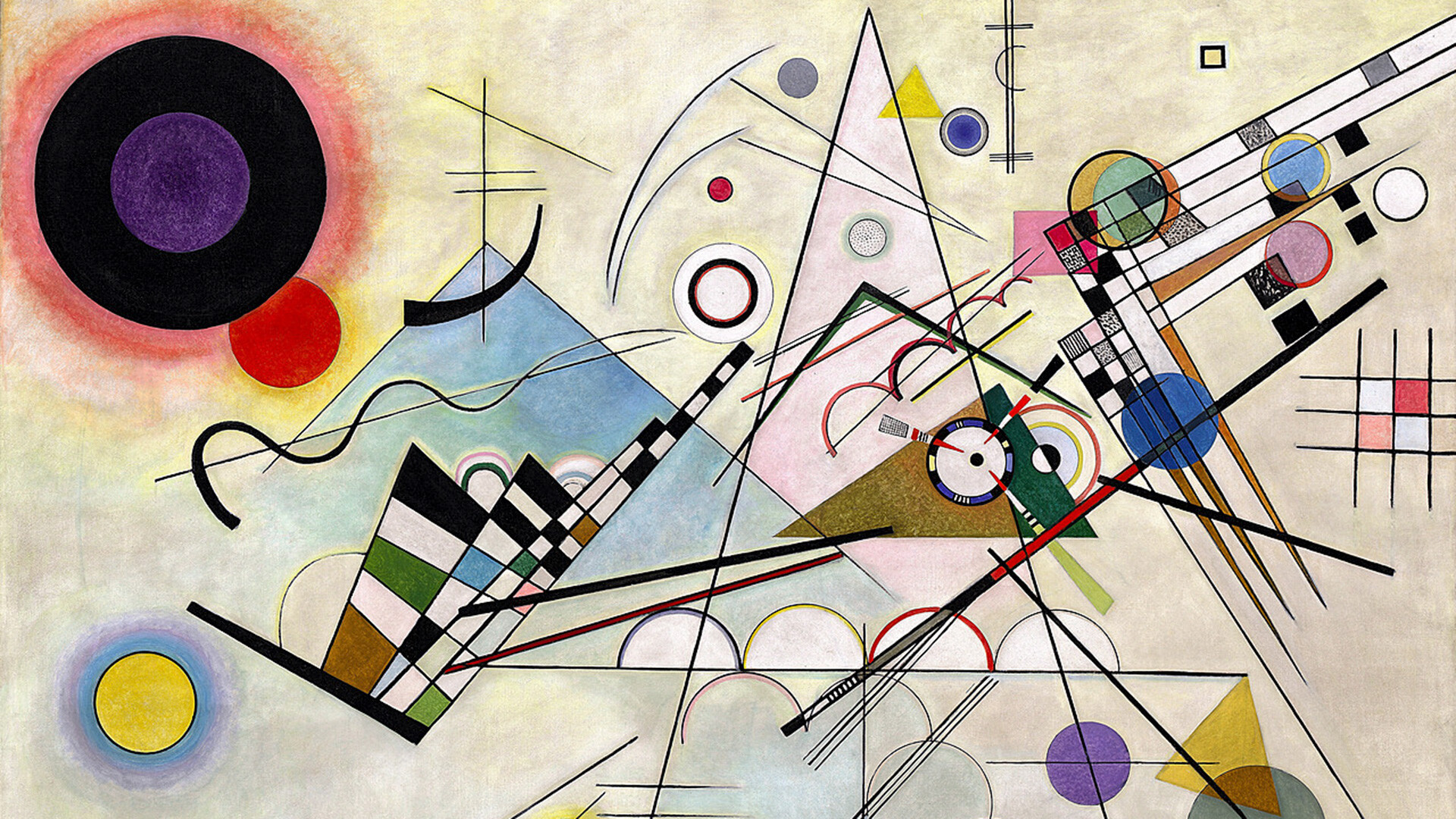
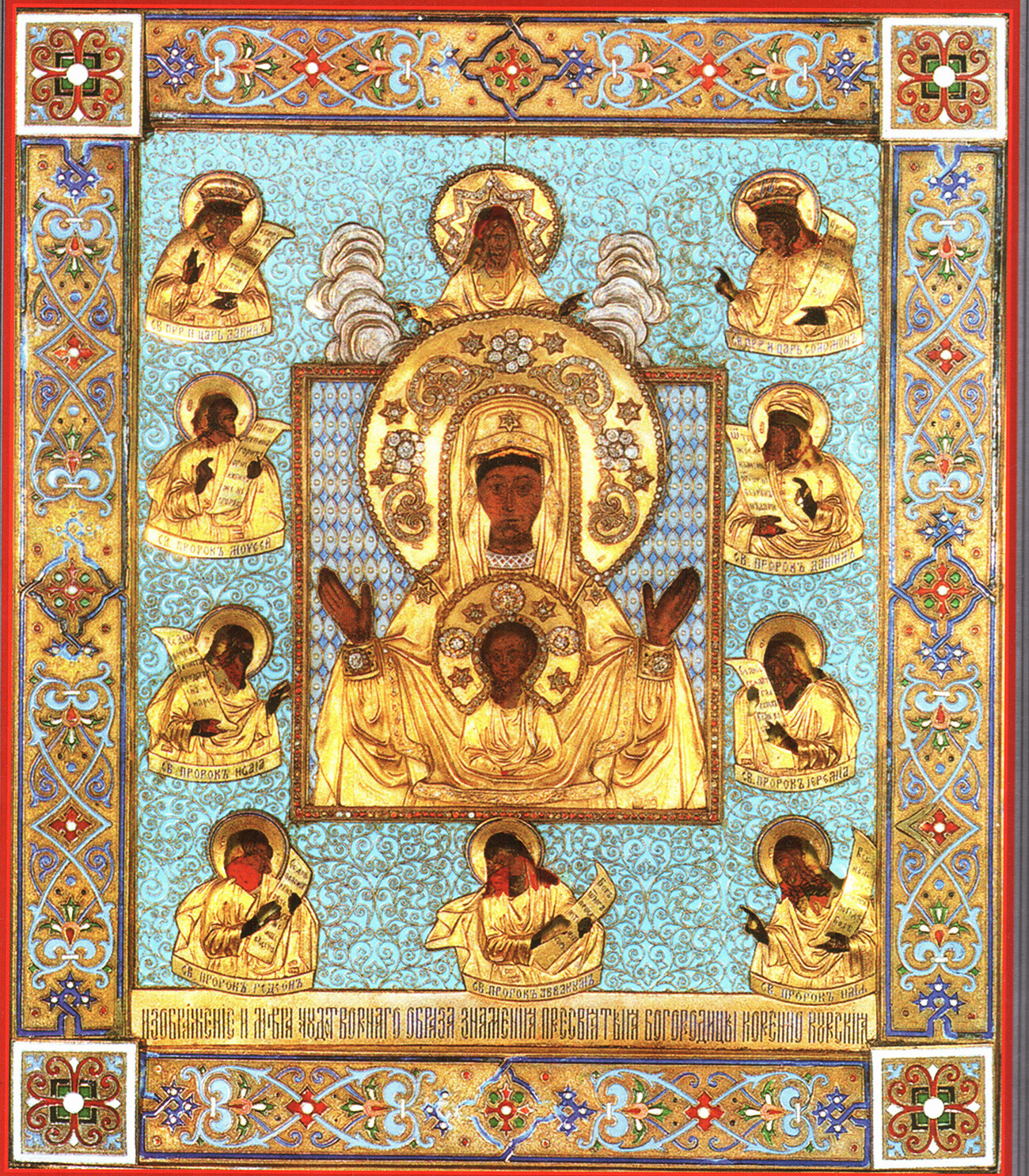
This wonderworking icon left Russia in 1920. It was taken by priests who fled from the Bolsheviks during the Civil War. For a long time, it was kept in Belgrade, but, since 1950, its home has been in New York in the main cathedral of the Russian Orthodox Church Outside of Russia.
Read more about the icon’s journey here.
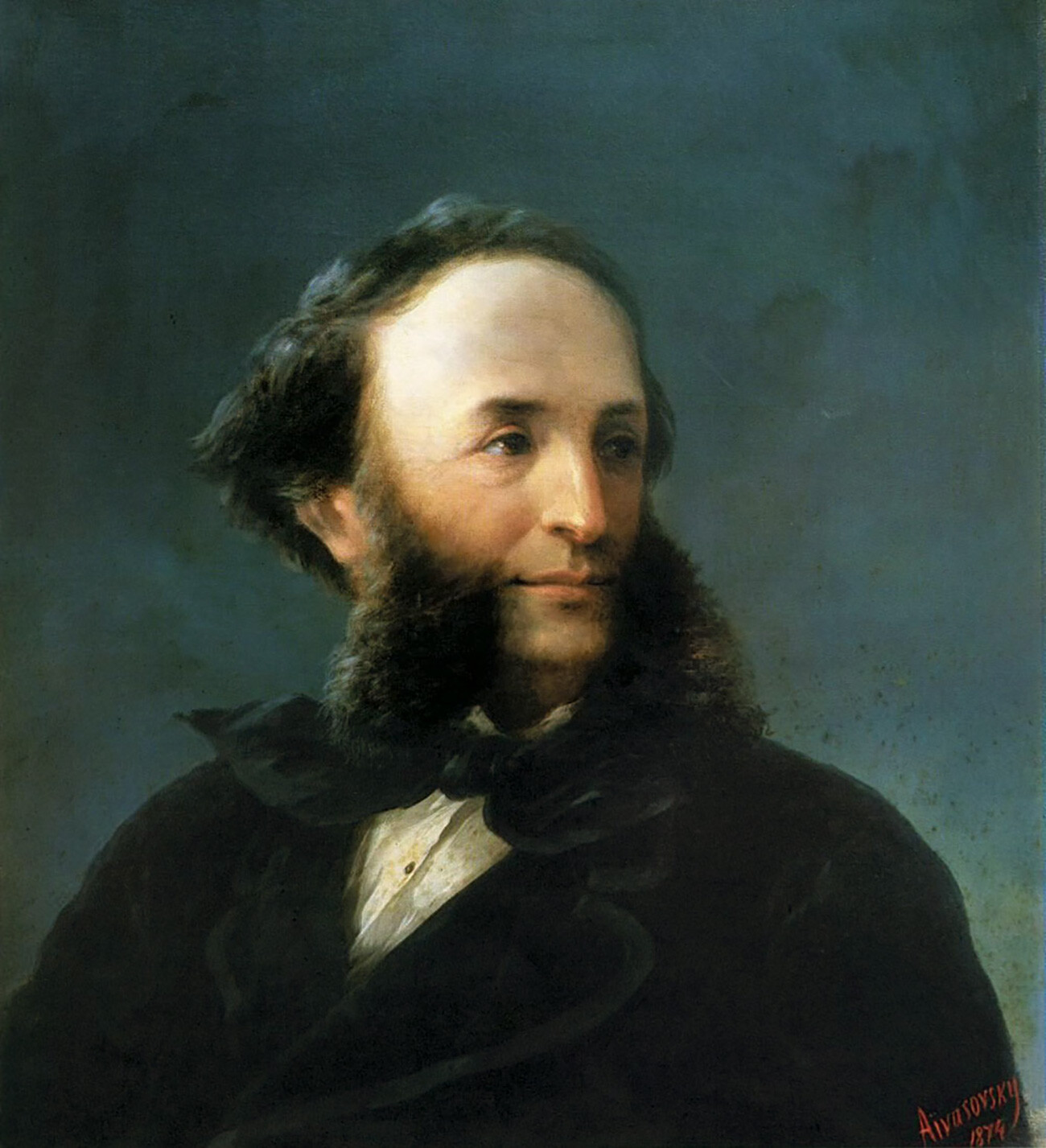
Few Russian artists have had the honor of being represented in the gallery that houses the masters of the Renaissance. In 1873, the Uffizi hosted an exhibition of paintings by Russia’s main marine artist. The gallery had an old tradition of commissioning self-portraits of prominent artists, and Aivazovsky received such an offer. He depicted himself against the background of a stormy sky.
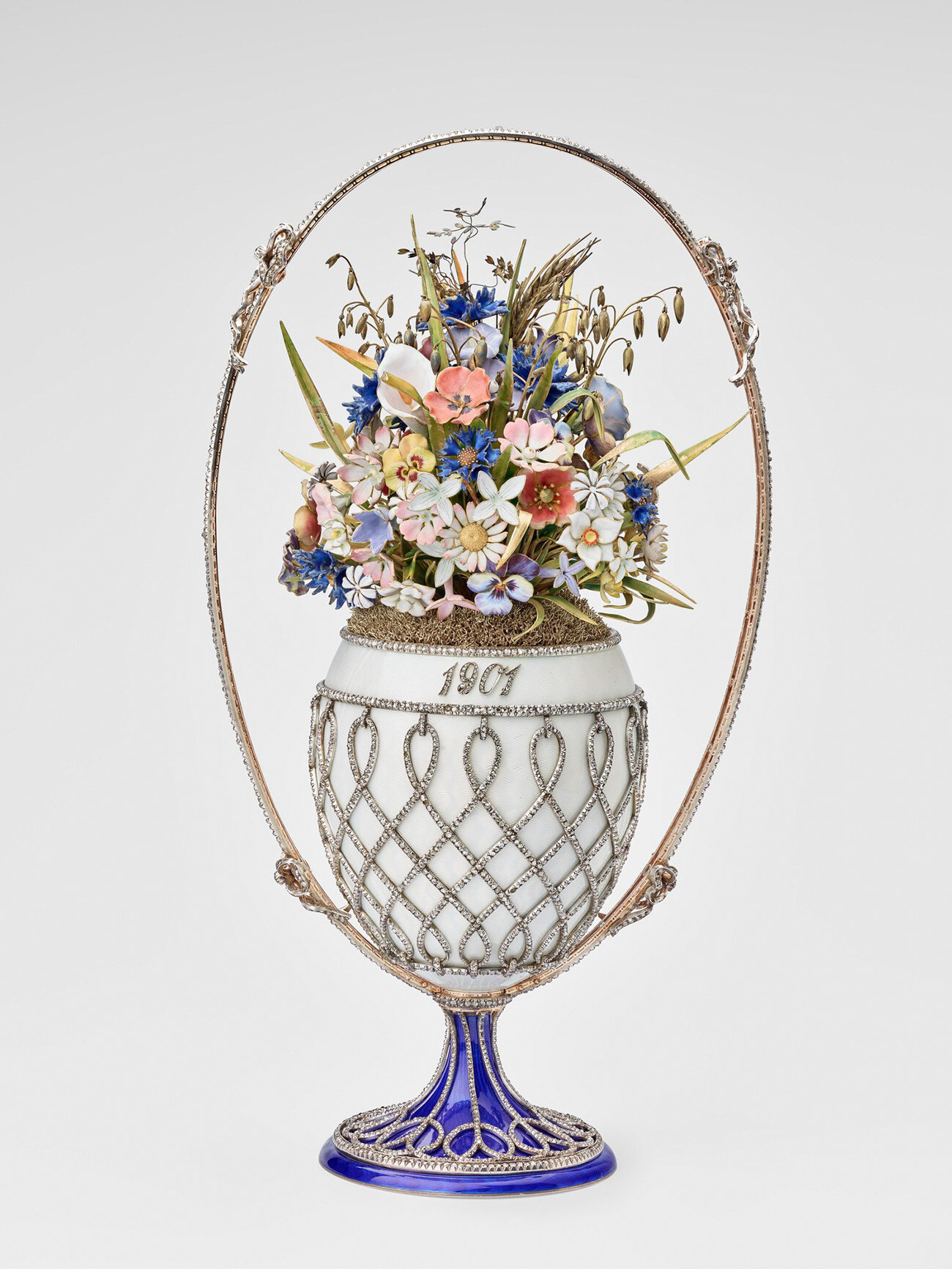
'Basket of flowers' (1901) Faberge egg
The Royal Collection, London, UKThe British Royal Collection contains many items of Russian art, including icons, paintings and portraits, graphics, malachite vases from Peterhof and many others.
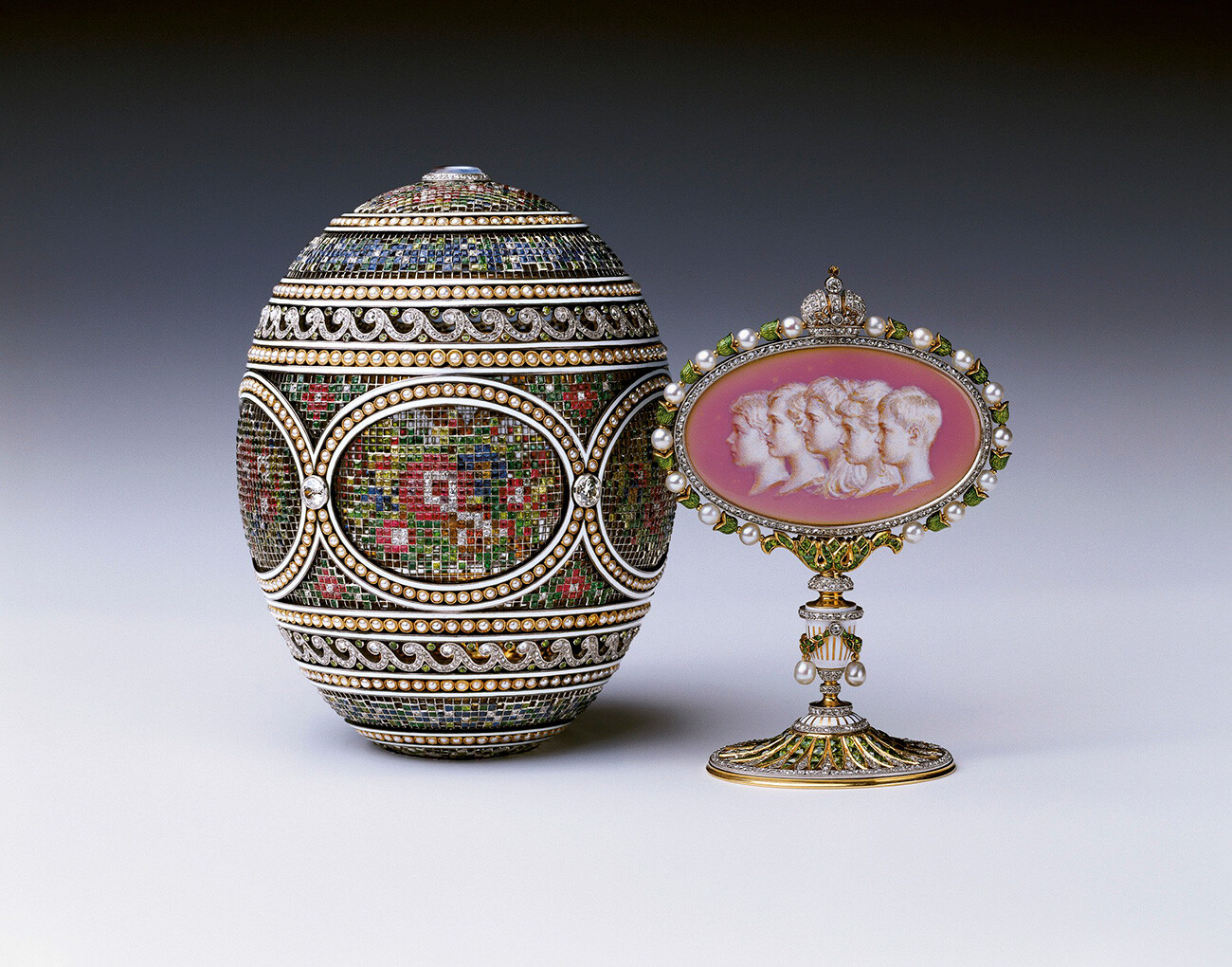
'The Mosaic' (1914) Faberge egg
The Royal Collection, London, UKAmong them are two Easter eggs, which Nicholas II ordered from the famous Faberge firm for his wife Alexandra Feodorovna.
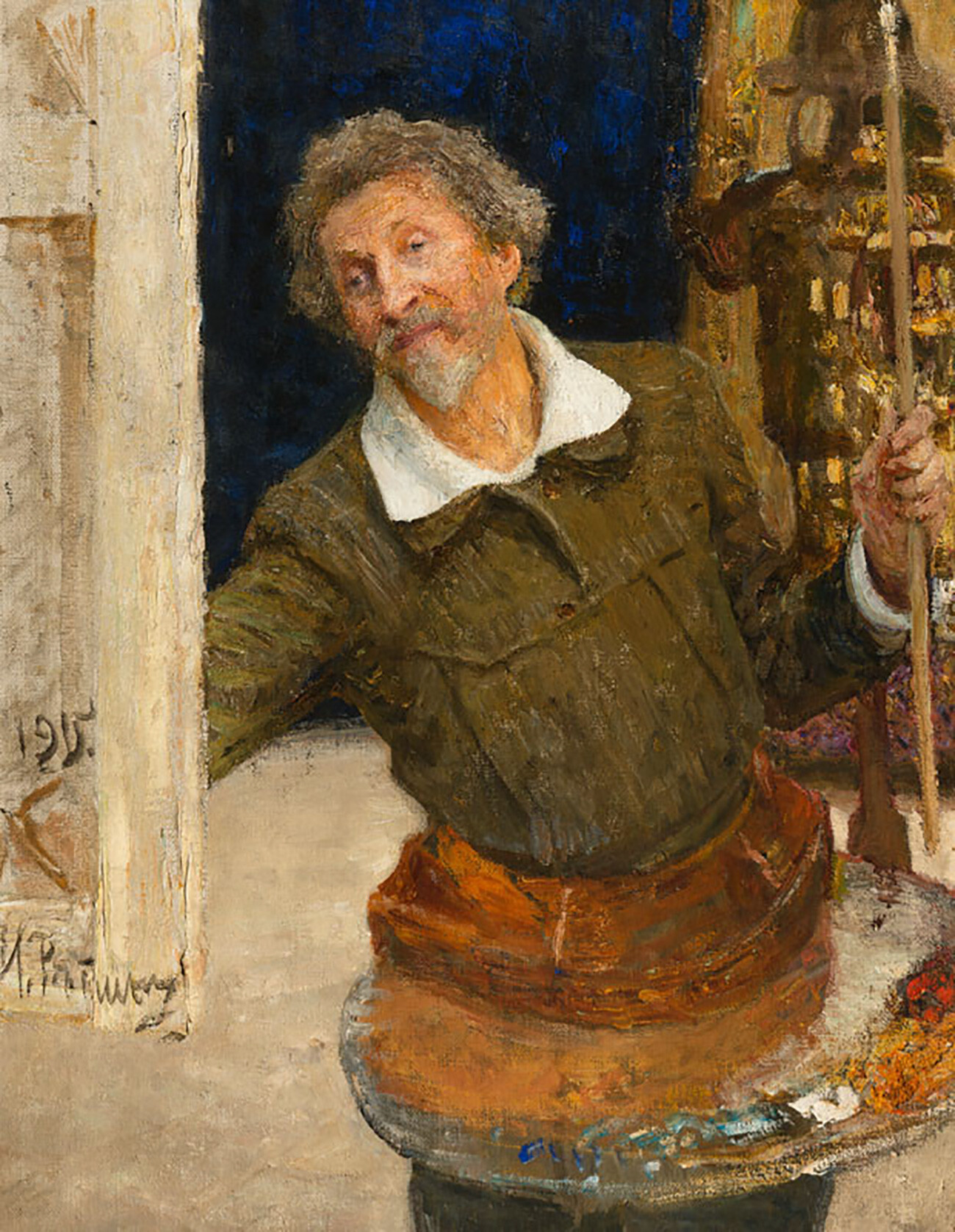
In 1900, an exhibition of the Russian Society for Itinerant Art was held in Prague (the only one ever held abroad; read more about them here). At this exhibition, the public also got acquainted with Repin's works. After the revolution, Prague became one of the centers of Russian emigration. Exhibitions of the artist-realist are often heldthere and this portrait is in the collection of the National Gallery. For a long time, however, it lay in storerooms.
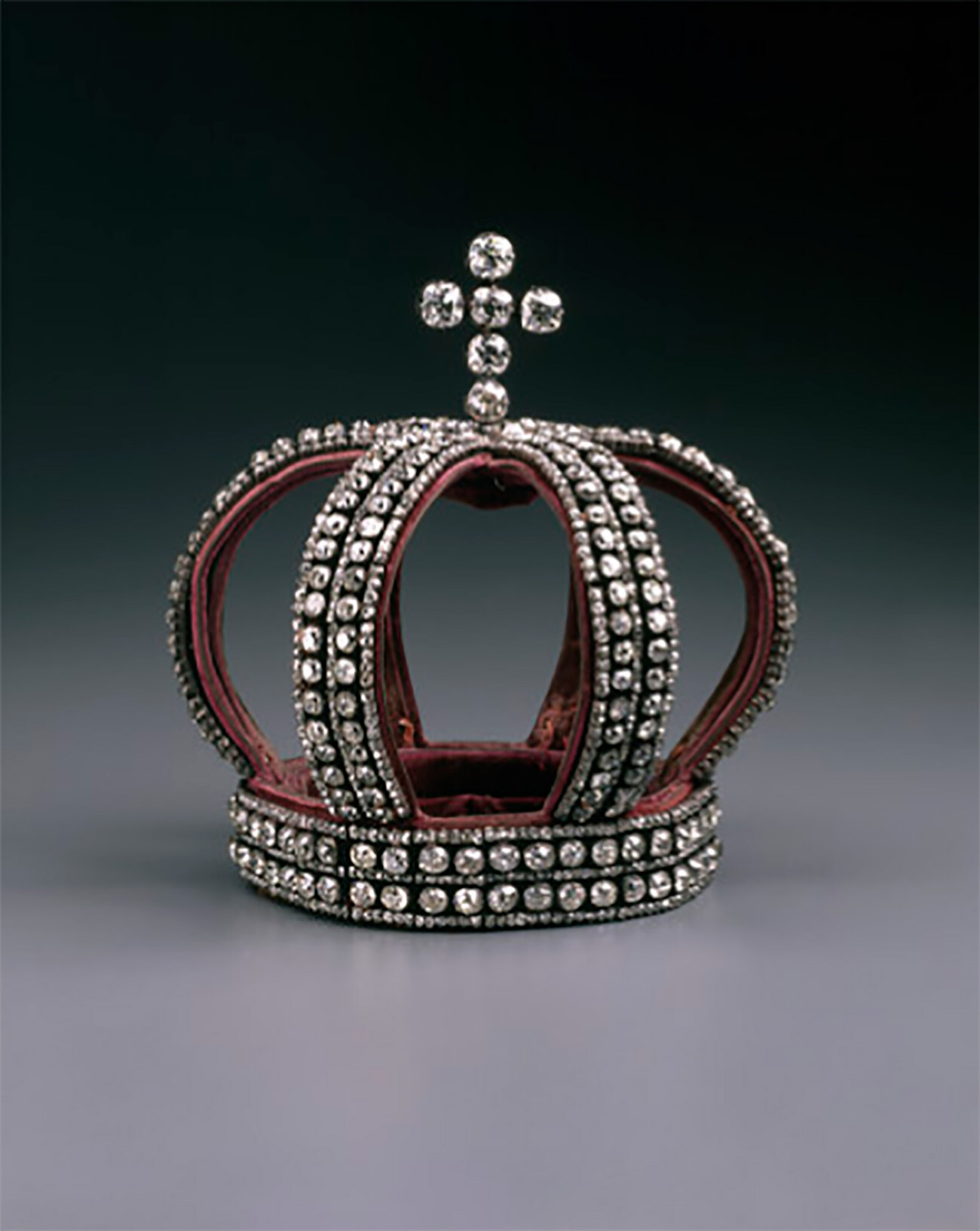
In 1966, this crown was purchased at a Sotheby's auction by Marjorie Post, wife of the former American Ambassador to the USSR. Back in the 1930s, while living in Moscow, she bought a huge number of items from Tsarist Russia from a consignment store. In the 1960s, she moved her extensive collection of Russian rarities to her Hillwood estate near Washington D.C. Now, it is one of the largest museums of Russian tsarist treasures in the United States: porcelain, paintings and jewelry, including Fabergé eggs.
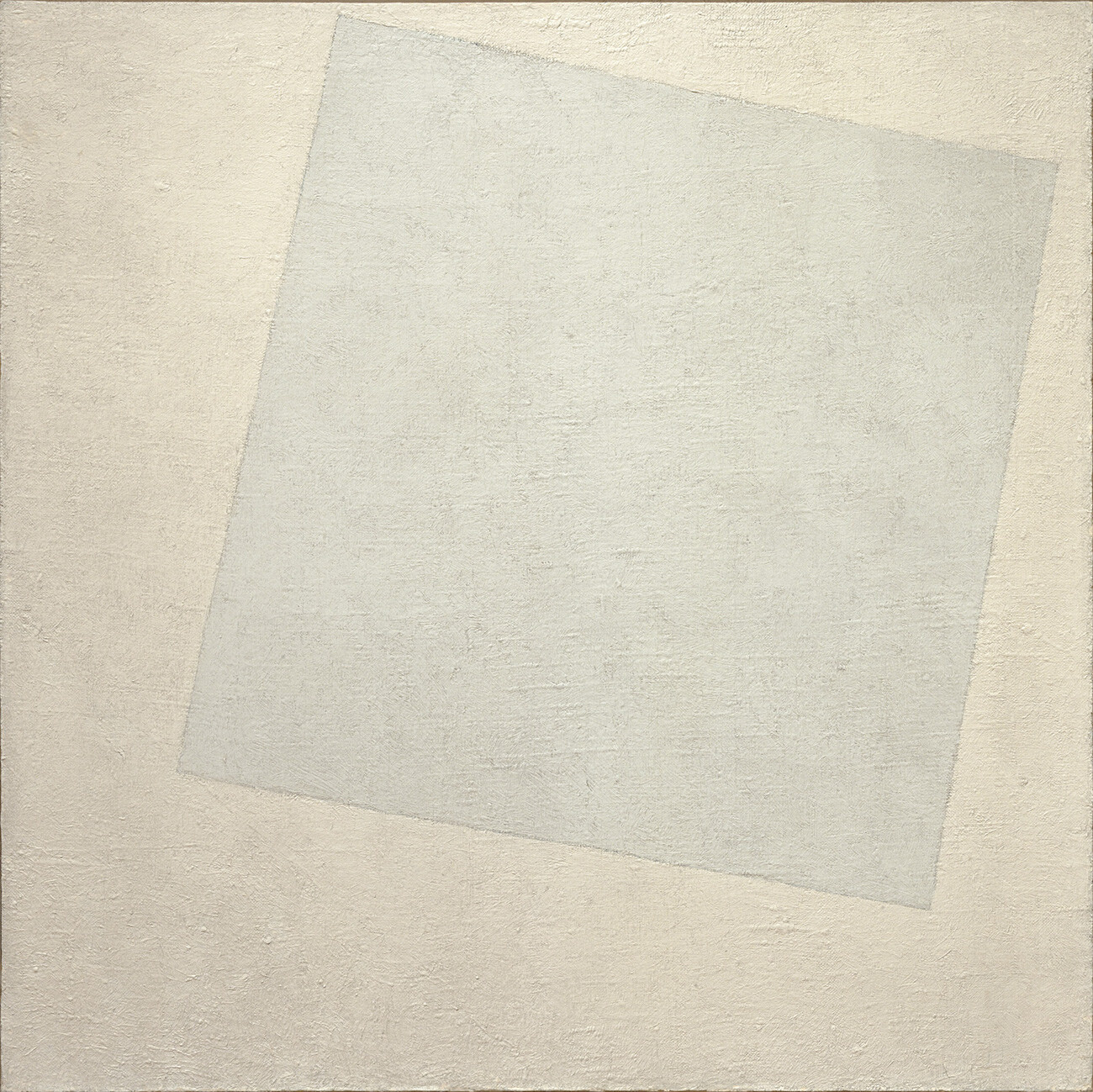
The Soviet authorities declared avant-garde painting to be too formalist, but, outside Russia, it was in a high demand. Malevich painted the suprematist composition ‘White on White’ after his famous ‘Black Square’, as well as several other works in the spirit of ‘White on White’, which Russian museums lack today. However, they can be found in the New York's MoMA. It also houses several other works by Malevich and other iconic avant-garde artists, from Wassily Kandinsky to Natalia Goncharova and Marc Chagall.
7. Marc Chagall’s ‘Birthday’ (1915) and ‘I and the Village’ (1911) — MoMA, New York City, United States
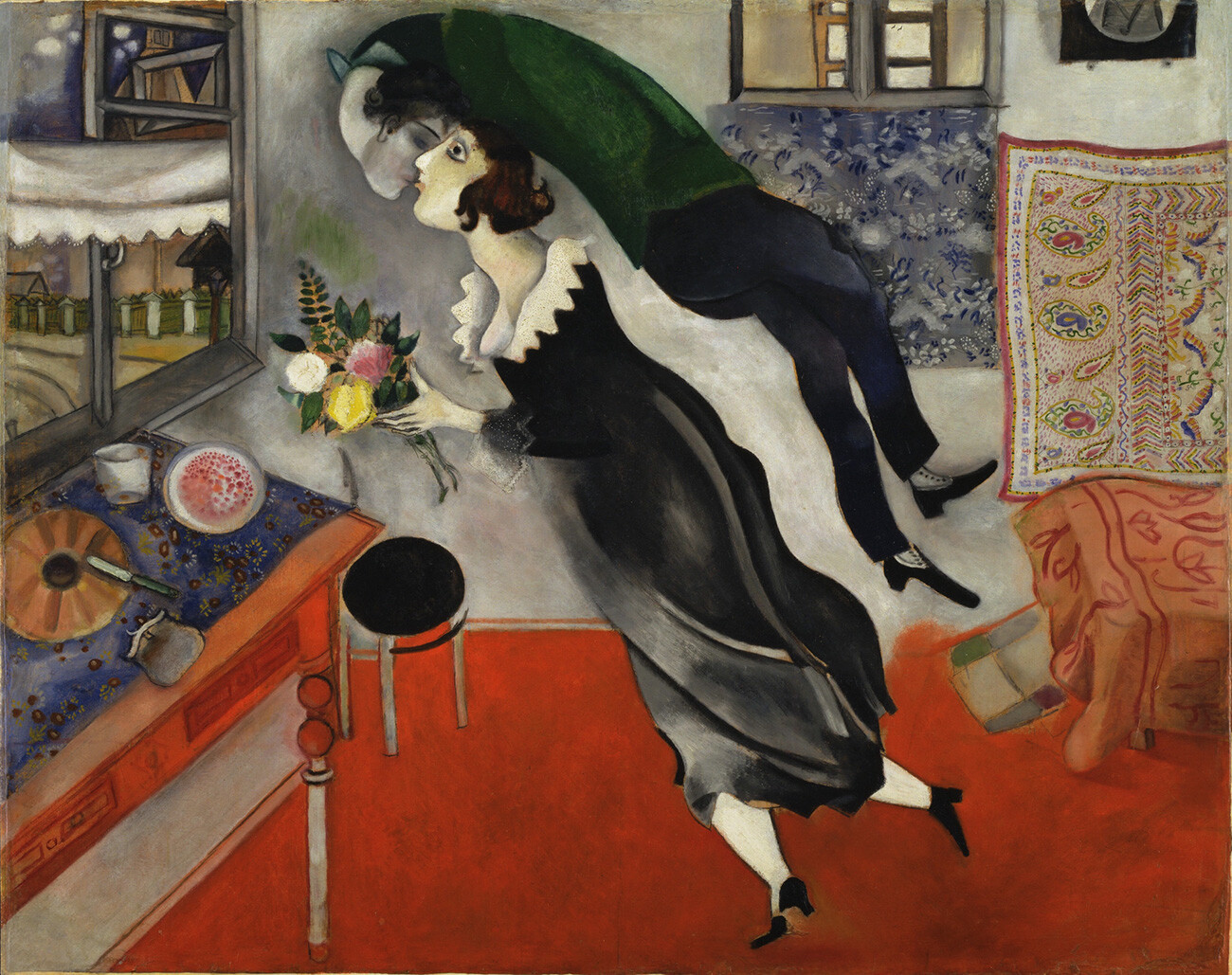
Marc Chagall ‘Birthday’ (1915)
MoMAMasterpieces by the Jewish artist, who was born in Vitebsk (then the Russian Empire), but later settled in France, can be found in museums around the world.
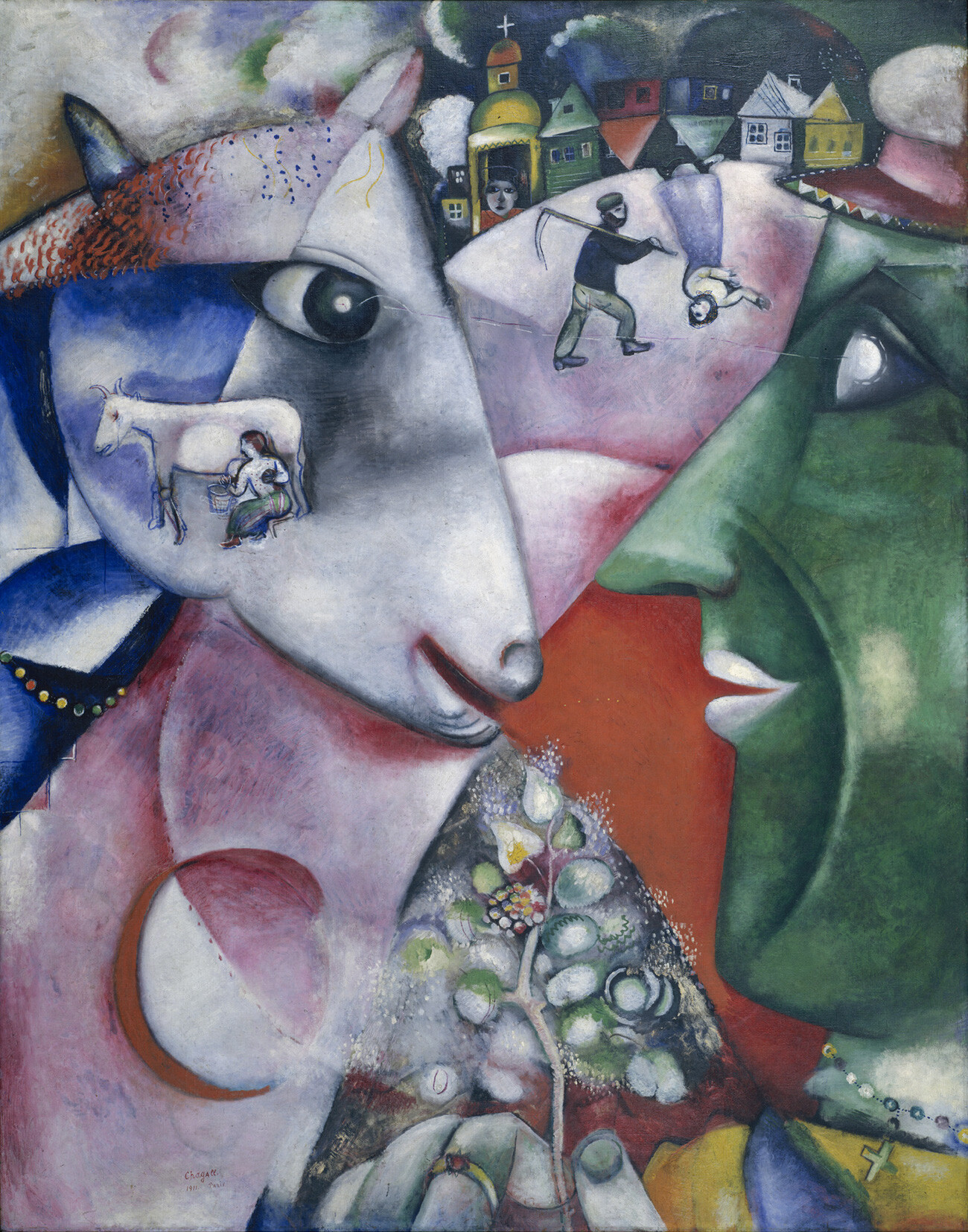
Marc Chagall ‘I and the Village’ (1911)
MoMAMoMA boasts several works, including these famous autobiographical paintings.
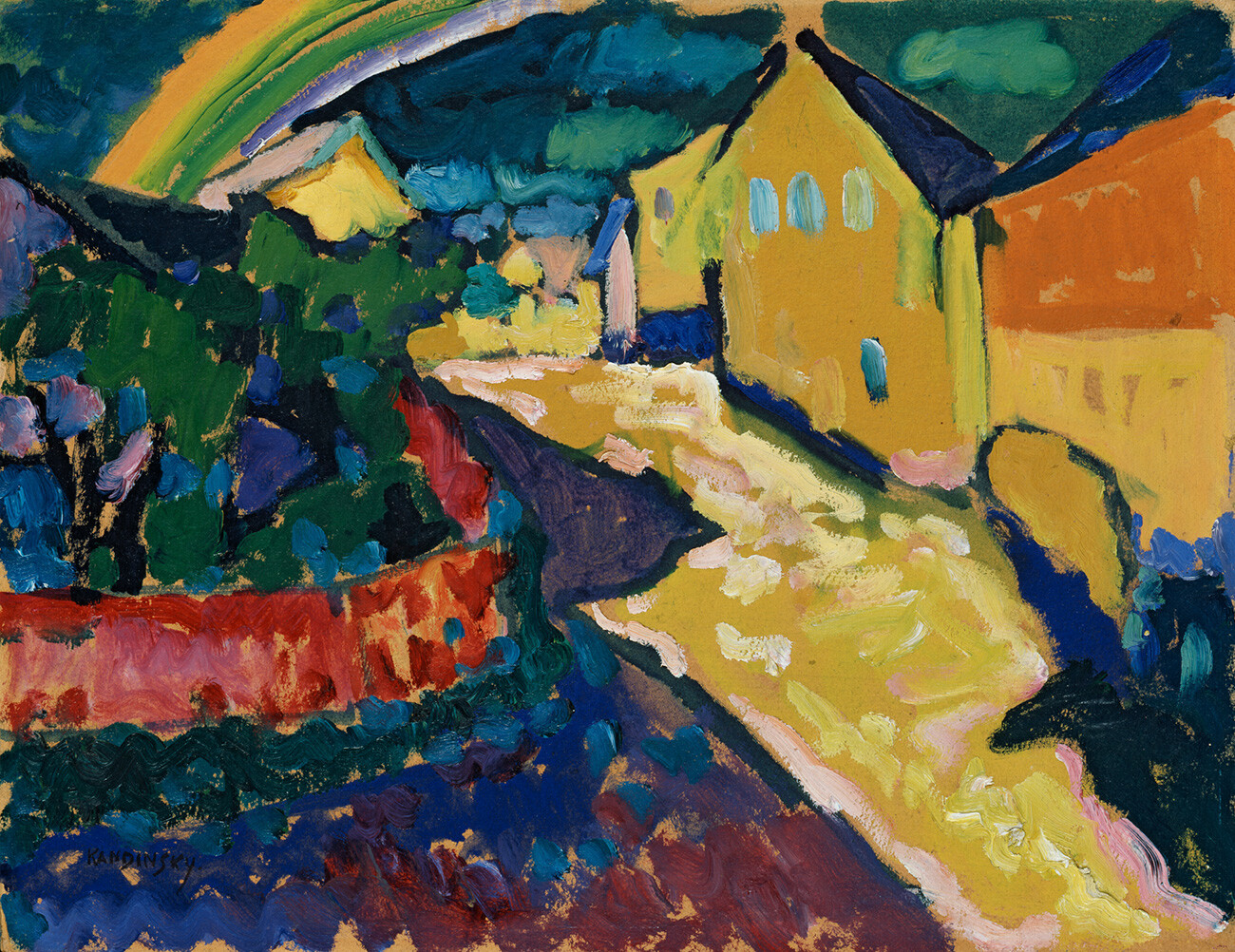
Kandinsky's abstract art can be found in New York, Paris, Moscow and Berlin. A huge collection of his paintings is kept in Munich's Lenbachhaus Gallery. All the artists of the Blue Rider art group, founded by Kandinsky, are also exhibited there. Munich was a special city for the artist, as he studied at the Academy of Fine Arts there and lived there for many years.
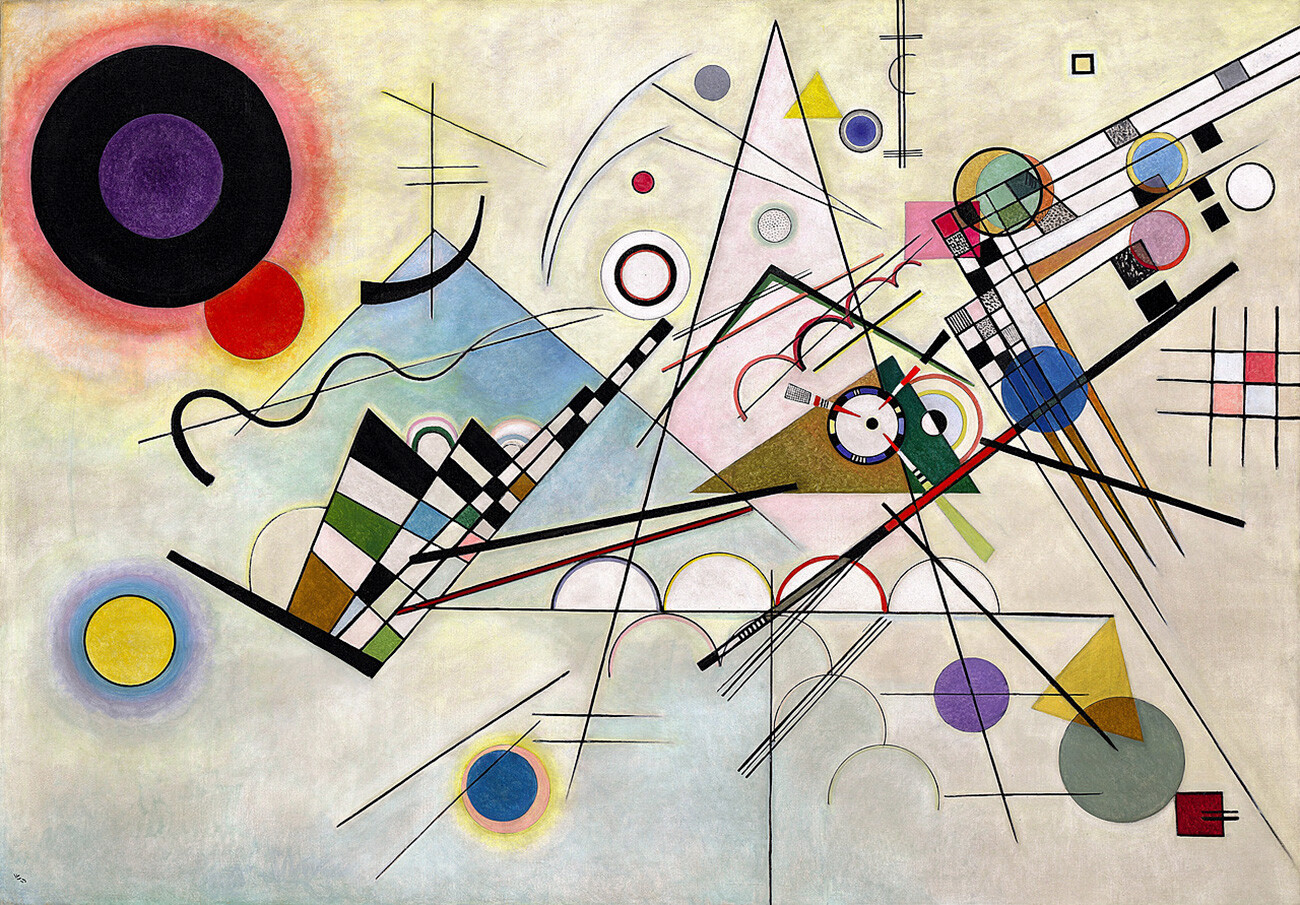
One of Kandinsky's most famous works is located in the United States. Collector Guggenheim was a big fan of avant-garde, so, he had Kandinsky, as well as Malevich and many other Russian modernist artists in his collection.

The British have a special love for the Russian avant-garde. London’s Tate gallery has a large collection of the early 20th century art experiences, including paintings by Natalia Goncharova and her husband Mikhail Larionov.
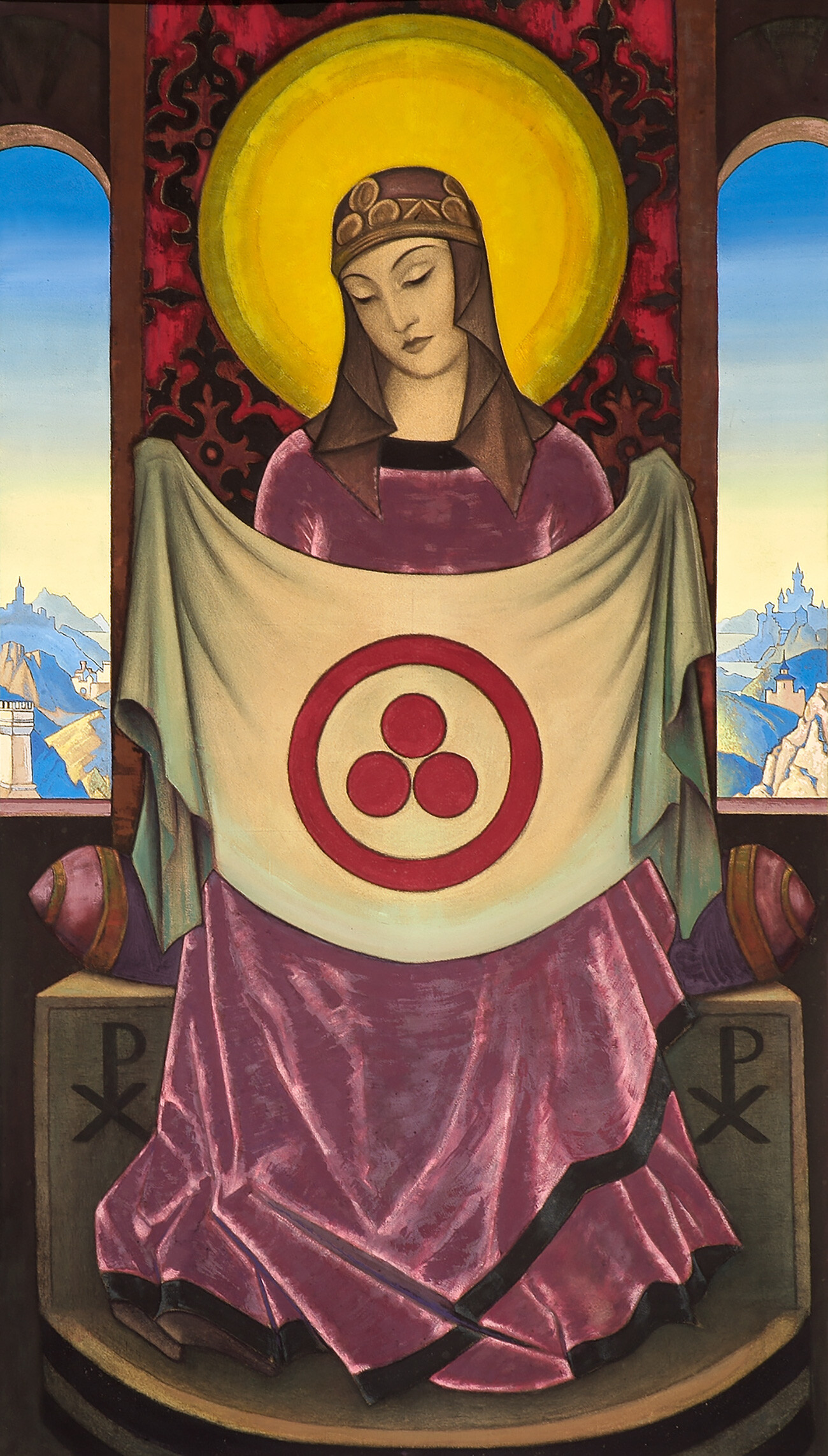
Nicholas Roerich ‘Madonna of Oriflamma’ (1932)
The Roerich Museum in New York CityIn Manhattan, there is an entire museum filled with paintings by this mystical and distinctive Russian artist. There are mostly views of the Himalayas, but there are also Russian landscapes and religious and philosophical works, such as ‘Madonna of Oriflamma’ (1932).
Read more about the Roerich Museum in New York in our article.
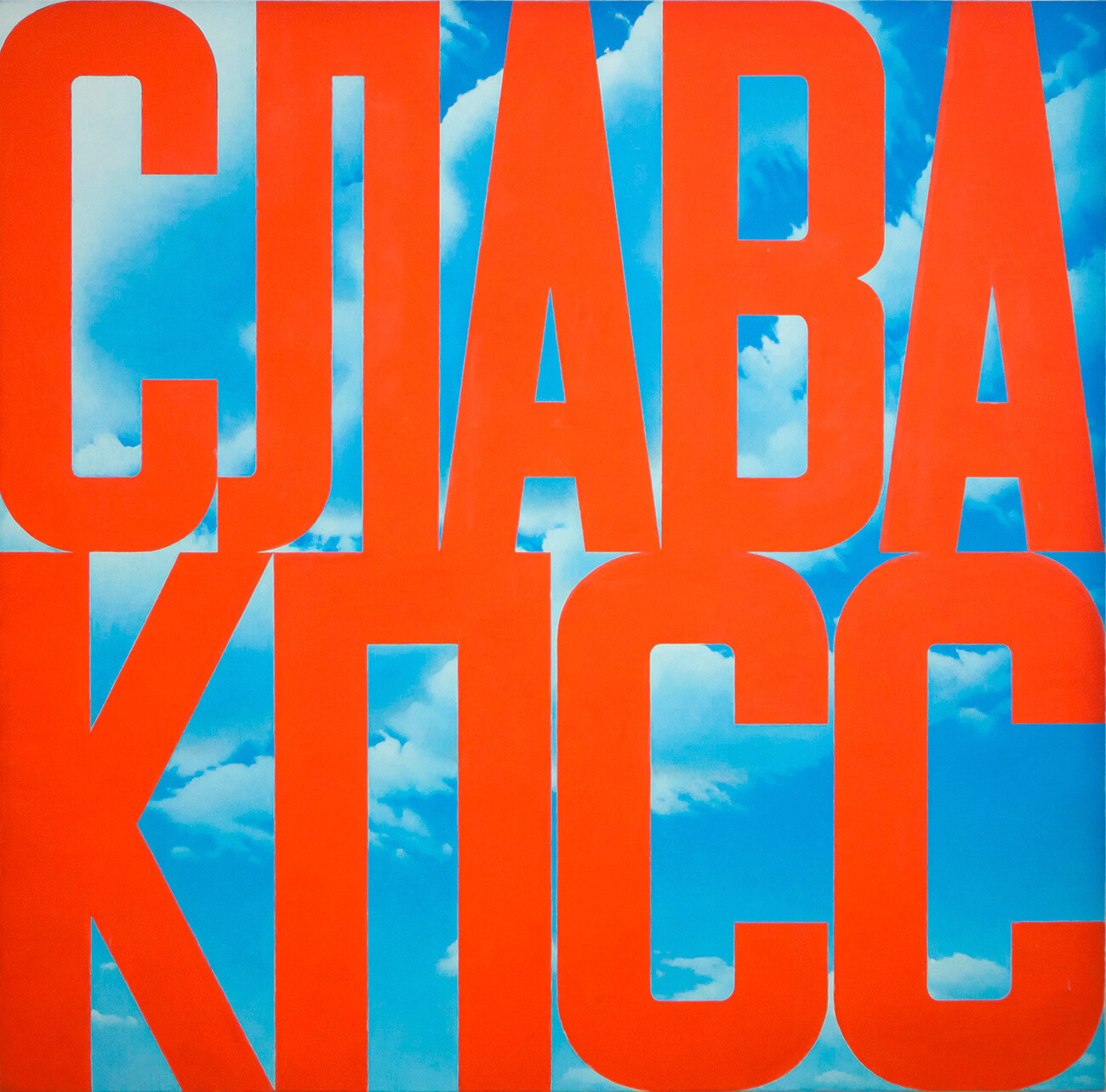
The Pompidou Center in Paris has a huge collection of Russian art and it’s no wonder, as it was to Paris that the bulk of the Russian artists emigrated to. But, in addition to avant-garde masterpieces, the museum also has the largest collection of Russian contemporary art outside of Russia. In 2016, the Potanin Foundation donated more than 300 works from the 1950s-2000s to the French gallery, including this emblematic canvas by Eric Bulatov.
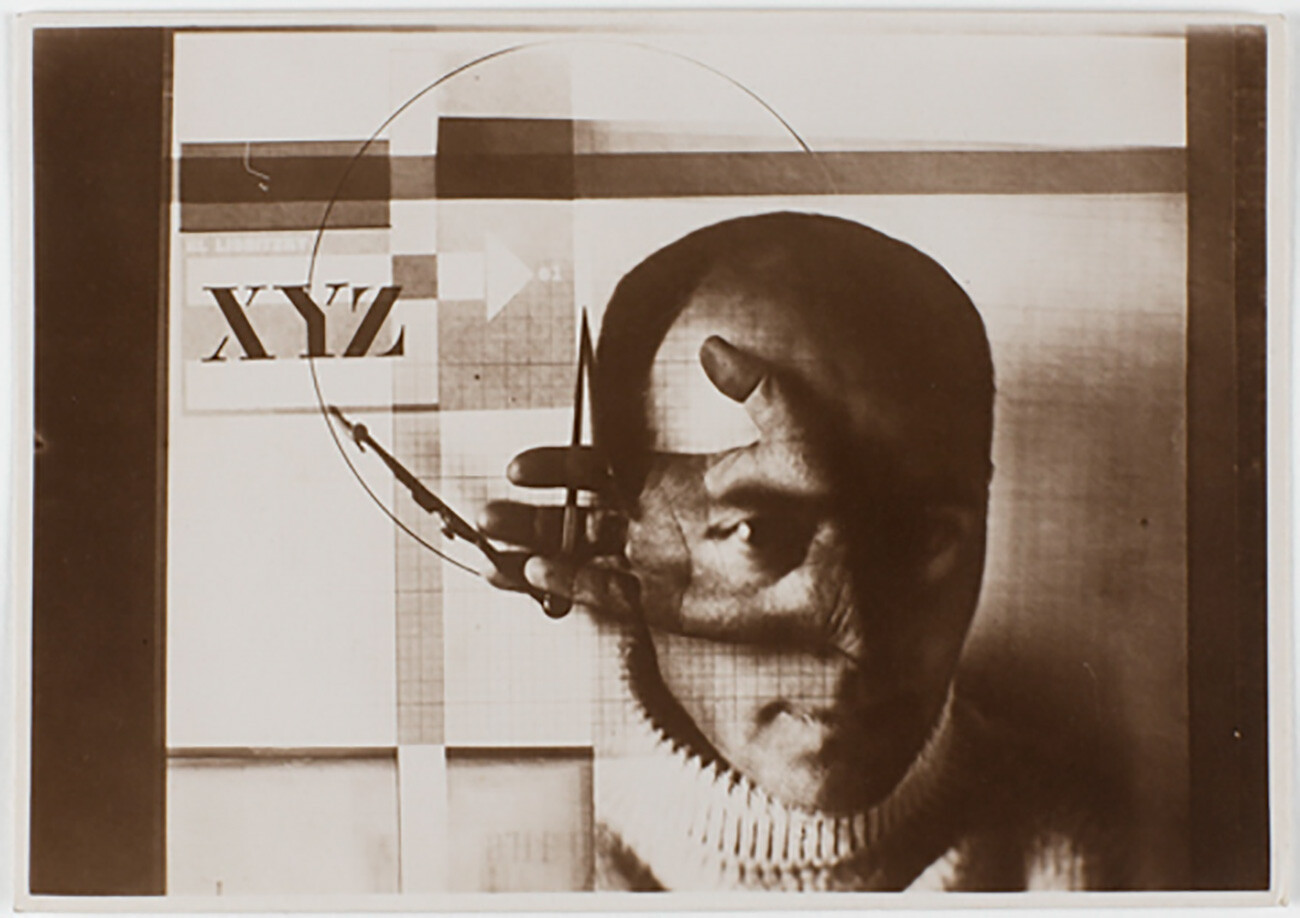
Avant-garde artist, painter and architect El Lissitzky lived his entire life in Russia and the USSR. This collage ended up in the collection of Nikolai Khardzhiev, which he took abroad. This is how it ended up in the Amsterdam museum, along with a large number of other works.
Dear readers,
Our website and social media accounts are under threat of being restricted or banned, due to the current circumstances. So, to keep up with our latest content, simply do the following:
If using any of Russia Beyond's content, partly or in full, always provide an active hyperlink to the original material.
Subscribe
to our newsletter!
Get the week's best stories straight to your inbox